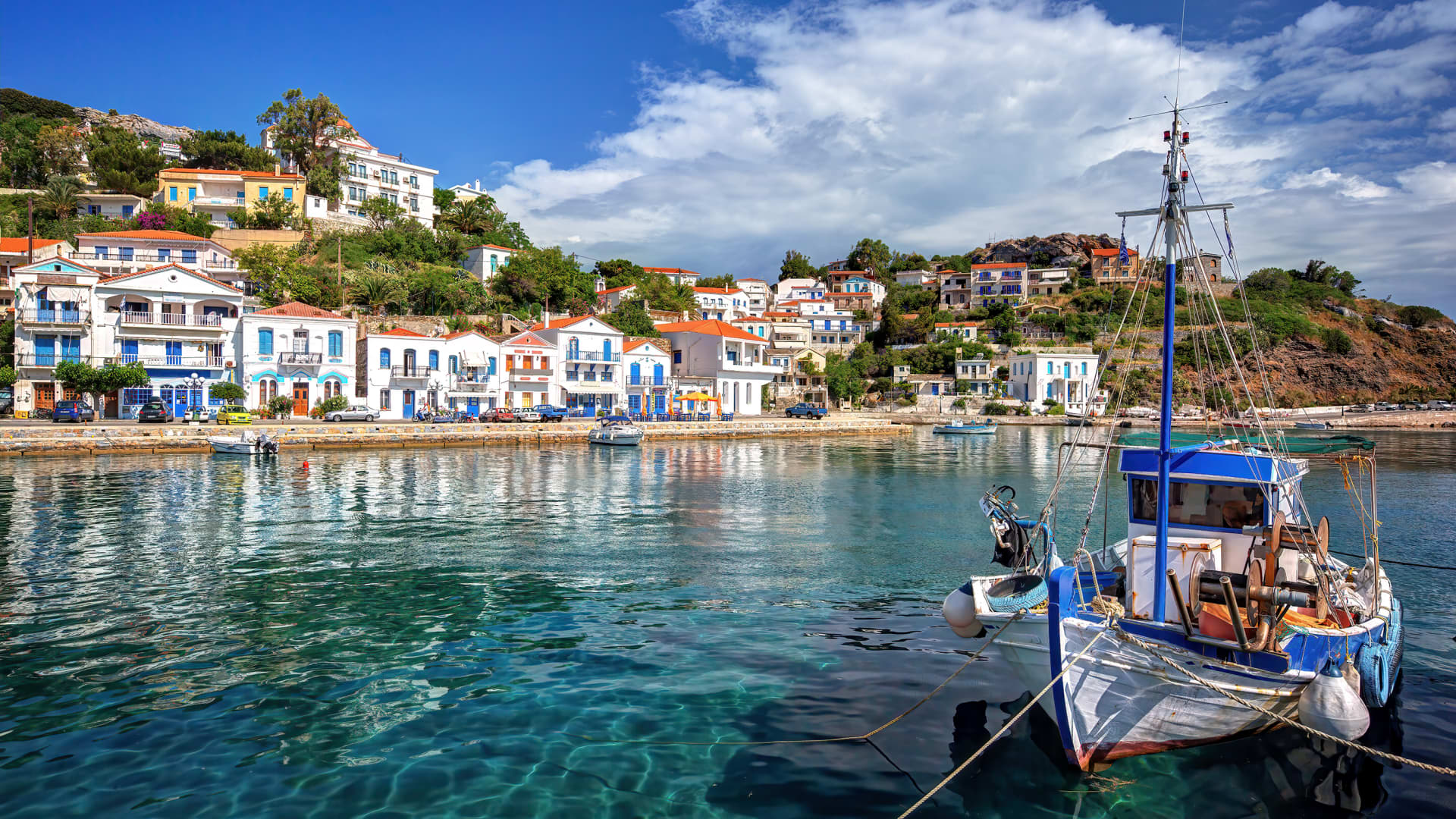On Ikaria, the Greek island where people “forget to die,” as one centenarian told longevity expert Dan Buettner, is one of a handful of Blue Zones around the globe where people live an inordinately long time.
In 2009, Greek physicians and researchers found that 13% of Ikarians in their study were over 80, compared to about 1.5% of the global population and about 4% in North America and Europe. People on the island were 10 times more likely to live to 100 than Americans.
I have deep family roots on Ikaria, and for almost two decades, I’ve been running a cooking school out of the kitchen and garden of my village home. My pantry is culled from the traditions of the Mediterranean: chock-full of all the things that have long given food its flavor in this part of the world.
Here’s what’s in an Ikaria-inspired pantry:
Beans and legumes
These are among the seminal ingredients of the Ikarian way of eating. Adding them to your everyday meal plan is proven to increase longevity and can help you phase meat out of your diet. Try:
- Broad beans (aka, fava beans)
- Chickpeas
- Gigantes (giant beans)
- Lentils
- Split peas
Chickpea stew with honey-roasted cauliflower and root vegetables, from Diane Kochilas’s book “The Ikaria Way.”
Diane Kochilas
Garlic
I couldn’t imagine my life or kitchen without garlic! It’s the ultimate flavor-packing, health-providing natural ingredient. There’s a virtual pharmacopeia of goodness in every clove.
Modern-day Ikarians swear by it. My daughter makes a preventive infusion of raw garlic, mountain or sage tea, ginger, and honey, which she consumes when the temperature drops or she feels a cold coming on — advice taken from our friend, Yiorgos Stenos, 91.
Garlic makes almost everything taste better. It sweetens up as it softens and cooks, lending an almost caramelized flavor to so many different foods.
Grains
Whole grains are an integral part of the Ikaria diet. Here are a few different types to keep on hand:
- Bulgur
- Farro
- Pasta, especially whole wheat pasta and gluten-free, high-protein, bean-based pastas, such as chickpea and lentil pastas
Herbs
On Ikaria, myriad herbs grow wild and most of us can grow a few pots of fresh herbs at home, even if it’s just on the windowsill. I use herbs with abandon in many of my recipes.
Most families have a cupboard packed with dried herbs, the therapeutic qualities of which are contained in the knowledge passed down from generation to generation. Basic dried herbs include:
- Bay leaves
- Oregano
- Savory
- Thyme
- Mint
Longevity greens rice, from Diane Kochilas’s “The Ikaria Way.”
Diane Kochilas
Nuts
Nuts are an important ingredient in many of my plant-based recipes and traditionally are an important ingredient in Greek regional cooking. They grow abundantly throughout the country.
Here are a few of the most popular — and healthiest:
- Almonds
- Pistachios
- Sesame seeds and tahini
- Walnuts
Olives
Olives have been a staple in the Greek diet since prehistoric times, and they’re one of the many preserves I always keep stocked.
In Greece, they’re traditionally eaten on their own or in salads. I love to pair them with pantry staples like beans or pasta and other grains.
Olive oil
Olive oil is the defining food of the Mediterranean diet and an absolute must in the pantry.
Many of the health benefits associated with the Mediterranean diet, and, by extension, the Ikaria diet, are attributed to the health properties of olive oil. I only use extra virgin oil, which simply means the oil is unrefined.
Sea salt
On Ikaria, many people, myself included, use sea salt that collects in the small natural salt basins that have formed along the island’s rocky coastline over eons. It tastes better than regular table salt, which comes from mines and is heavily processed.
Diane Kochilas sauteeing onions during a cooking class.
Diane Kochilas
Honey
This is one of my personal favorites. Consuming honey daily is one of the longevity secrets of the islanders. Honey is antibacterial, rich in antioxidants including flavonoids, and — unlike white sugar or artificial sweeteners — helps the body to regulate blood sugar levels. Many people here eat a spoonful every morning.
You can add a liberal drizzle to your tea or a breakfast smoothie bowl, or whisk it into dressings.
Dried fruits
Figs and raisins are two dried fruits I always have on hand to use in all sorts of savory dishes, especially in salads and rice dishes.
Yogurt
Yogurt is a fermented food that has been part of the culinary tapestry of the Eastern Mediterranean for thousands of years. The traditional yogurt on Ikaria is produced with goat’s milk and has a delicious sour flavor and creamy texture.
If goat’s milk yogurt isn’t to your liking, you might prefer the Greek yogurt commonly found in American supermarkets, which is similarly rich in probiotics.
Feta and similar cheeses
Almost all the cheese Ikarians make and eat is produced with goat’s milk or sheep’s milk, like feta. Much of it is naturally fermented.
Over the years of teaching mostly Americans who come to my classes, I’ve had many guests who are lactose intolerant but are able to enjoy the island’s traditional goat’s milk cheeses and even a glass or two of fresh goat’s milk without a problem.
Diane Kochilas is the host and co-executive producer of “My Greek Table,” runs the Glorious Greek Cooking School on her native island Ikaria, and is the author of 18 books on Greek cuisine, including most recently, “The Ikaria Way: 100 Delicious Plant-Based Recipes Inspired by My Homeland, the Greek Island of Longevity.”
Want to make extra money outside of your day job? Sign up for CNBC’s new online course How to Earn Passive Income Online to learn about common passive income streams, tips to get started and real-life success stories. Register today and save 50% with discount code EARLYBIRD.
Plus, sign up for CNBC Make It’s newsletter to get tips and tricks for success at work, with money and in life.













